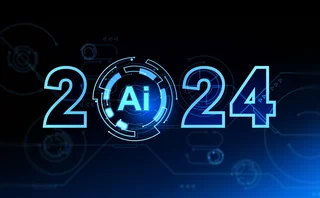The Far Pavilions
Throwing more technology at technology problems is rarely the answer, but keeping central questions in mind can prompt beneficial reform

The first is relatively simple to find in the world of financial technology, and you only need to look at the sheer amount of categories in our awards for very specific functions to see that. Tech, as a rule, is often created in this space to fix a particular problem—think about it in terms of a trade’s lifecycle.
There are individual systems that handle management of an order, the execution of a trade, the accounting structures around a portfolio, the routing of that order, the confirmation and affirmation at the venue, the collateral management for any margin requirements, the credit checking, the risk management and compliance aspects, the reconciliation between systems and ledgers, the clearing, the settlement, the reporting and then the internal systems that follow, not to mention the client reporting and customer relationship management systems that then kick in.
When you look at it like that, it’s a wonder that anything gets done, and that’s an abridged process.
This way of looking at technology structure is, of course, one that has been designed by engineers. To each function a system, and to each system a network. It is, at first glance, however, gloriously inefficient, and that’s as much a reflection of the fact that the processes themselves are often outdated—in all honesty, if you’ve entered a trade into an exchange and verified it, do you need to go through several other steps just to write the ticket?
This brings us on to the second aspect of technology, which is, in a way, the second phase once the engineers have built the infrastructure—fine-tuning that, and making it work better for all involved. The folks at the International Swaps and Derivatives Association have made this one of their areas of focus over the past year or so.
This is evident when it comes to distributed-ledger technologies (DLT), with much of the enthusiasm coming from the prospect of either streamlining the onerous post-trade system around clearing and settlement. There’s also a great deal of enthusiasm about how blockchain can help digitize paper-based markets, as the London Stock Exchange Group (LSEG) said this week in announcing its DLT proof-of-concept for Italian small to medium enterprise markets.
There is a faint feeling that when people talk about improving technology, however, their immediate answer is to throw more technology at it. Instead, do people need to think on a smaller scale sometimes?
The reason for these thoughts, and for the title of this column, came about a few days ago when I gave a copy of The Far Pavilions, by M M Kaye, to my elderly landlady. It’s a hefty, thousand-page tome, for those who haven’t had the pleasure of reading it, and when I came home after another sweltering afternoon in New York the other day I found her reading on her Kindle on the front porch.
I asked her if she’d given up on the book already, and she shook her head, saying that she’d just bought it again on her device. A thousand-page book was a pain to hold, she said, and the Kindle let her adjust the text size as much as she liked, making it easier to read.
That is, perhaps, one of the better examples I’ve come across in terms of technology making life easier for people, rather than replacing one issue with another. As the industry turns its attention to looking at how emerging technologies can augment and even replace existing processes, it’s perhaps worth stripping everything back to that essential question—does this make it easier for the people involved?
If not, then those far pavilions of reform may be out of reach.
This week on Buy-Side Technology:
- Behold, in all their glory, the winners of this year’s Waters Rankings. Write ups and video interviews from the day will be filtering through over the next few weeks, and most of us here in the New York newsroom will be catching up on our sleep debt this weekend. And in answer to the many people who asked me about this yesterday at the Rankings lunch event, the three and the one in the image go with the two in “2017”, making 1,2 and 3—a ranking.
- The LSEG is partnering with IBM on a blockchain for Italian SMEs. I did ask about why a blockchain was needed, but was told to think of it in terms of business models rather than technology.
- ITG is tackling transaction-cost analysis in fixed income, and this is just one of those things that seems to come up like clockwork, every two years or so, with a new asset class.
- I work for a technology magazine, and I like to think I understand technology pretty well, but then I read things about mainframes and realise that my colleague Anthony Malakian understands technology. Anyway this is super impressive, again from IBM, which has been knocking it out of the park this year.
Only users who have a paid subscription or are part of a corporate subscription are able to print or copy content.
To access these options, along with all other subscription benefits, please contact info@waterstechnology.com or view our subscription options here: http://subscriptions.waterstechnology.com/subscribe
You are currently unable to print this content. Please contact info@waterstechnology.com to find out more.
You are currently unable to copy this content. Please contact info@waterstechnology.com to find out more.
Copyright Infopro Digital Limited. All rights reserved.
As outlined in our terms and conditions, https://www.infopro-digital.com/terms-and-conditions/subscriptions/ (point 2.4), printing is limited to a single copy.
If you would like to purchase additional rights please email info@waterstechnology.com
Copyright Infopro Digital Limited. All rights reserved.
You may share this content using our article tools. As outlined in our terms and conditions, https://www.infopro-digital.com/terms-and-conditions/subscriptions/ (clause 2.4), an Authorised User may only make one copy of the materials for their own personal use. You must also comply with the restrictions in clause 2.5.
If you would like to purchase additional rights please email info@waterstechnology.com
More on Emerging Technologies
Agentic AI and big questions for the technologists
Waters Wrap: Much the same way that GenAI dominated tech discussions over the last two years, the road ahead will feature a lot of agentic AI talk—and CIOs and CTOs better be prepared.
Waters Wavelength Ep. 302: Connectifi’s Nick Kolba
Nick joins the show to give his views on trends in the interoperability space and the FDC3 standard.
AI co-pilot offers real-time portfolio rebalancing
WealthRyse’s platform melds graph theory, neural networks and quantum tech to help asset managers construct and rebalance portfolios more efficiently and at scale.
Waters Wavelength Ep. 301: SIX’s Javier Hernani
Javier Hernani, head of securities services at SIX, joins to discuss everything T+1.
Bloomberg debuts GenAI news summaries
The AI-generated summaries will allow financial professionals to consume more data, faster, officials say.
8 bank CTOs and CDOs sound off on artificial intelligence
Waters Wrap: Last year, WatersTechnology spoke with heads of technology and data from a range of tier-1 banks. Anthony pulls at one common thread from those interviews: AI.
Waters Wavelength Ep. 300: Reflecting on humble beginnings
It is our 300th episode! Tony and Shen reflect on how it all started.
An inside look: How AI powered innovation in the capital markets in 2024
From generative AI and machine learning to more classical forms of AI, banks, asset managers, exchanges, and vendors looked to large language models, co-pilots, and other tools to drive analytics.





